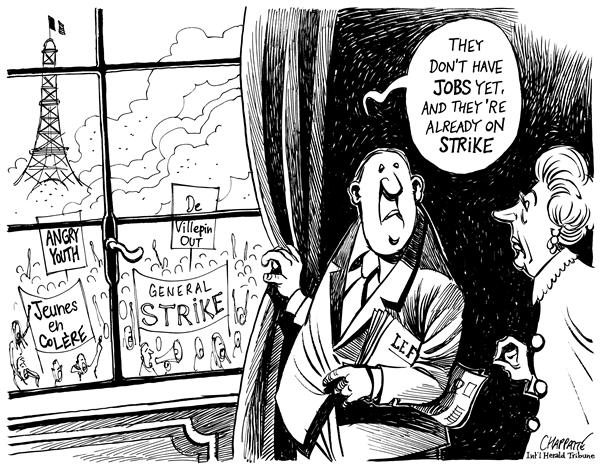For all the attention that’s been paid to Greece and its debtor negotiations lately, the coming battles over Europe’s troubled economy will be won not in Athens but mainly in Paris and Rome. France accounts for almost 22% of eurozone gross domestic product; Italy, more than 16%. Together, these two countries contribute more than 20 times Greece’s portion of eurozone GDP. If the eurozone is to escape its current stagnation, France and Italy must restart their economic engines once again.
The European economy has been given a lift in recent months by a weak euro and low oil prices. Regional elections in France and Spain have reduced concerns about populist parties derailing economic reforms. Politicians now have the breathing space to do the right things economically.
However, based on experience from the euro’s original launch at the turn of the century, there is reason for concern that such opportunities might be wasted. Back then, low interest rates induced some eurozone countries to go slow on structural reforms, relying instead on a monetary boost to the economy from the compression of sovereign-bond yield spreads. It would be most unfortunate if that experience were to repeat itself.
The real surprise now is that it is Italy, not France, that seems to have understood this. In February, Prime Minister Matteo Renzi’s government approved two decrees enacting the core of the labor-market reform. One improves the rules for firing employees on a permanent contract, giving them a right to severance pay but removing the previous right to court-ordered. The government also has reduced the time a worker can receive unemployment benefits, to 18 months from 2017 onwards.
Coupled with tax incentives introduced last year for companies that hire on regular as opposed to part-time contracts, it is now more enticing to hire in Italy than it has been in years.
In contrast, things in France are progressing much more tentatively. Paris continues to miss its budget-deficit targets, testing the European Commission’s flexibility. France’s prime minister, Manuel Valls, and its economy minister, Emmanuel Macron, have worked hard to convince the French Parliament of the merits of their reform package. Reforms would relax Sunday work restrictions, liberalize long-distance bus transportation, simplify employment tribunals and lay-off procedures, and deregulate white-collar professions such as notaries.
Limited in scope though this proposal was, the Valls government was nevertheless forced to resort to a rare constitutional provision to get it through the National Assembly on Feb. 19.
There is no time to waste. The Italian government has shown the way by creating the legislative framework for overcoming the two-tier labor market, while the French government is still dabbling with reforms that are only slightly more than symbolic. Paris still shies away from other essential steps, such as making its rigid 35-hour work-week regime more flexible.
It remains to be seen whether the measures required to make Italy’s labor market more flexible take proper shape in reality. But for now, at least, Italy has a head start on France.

